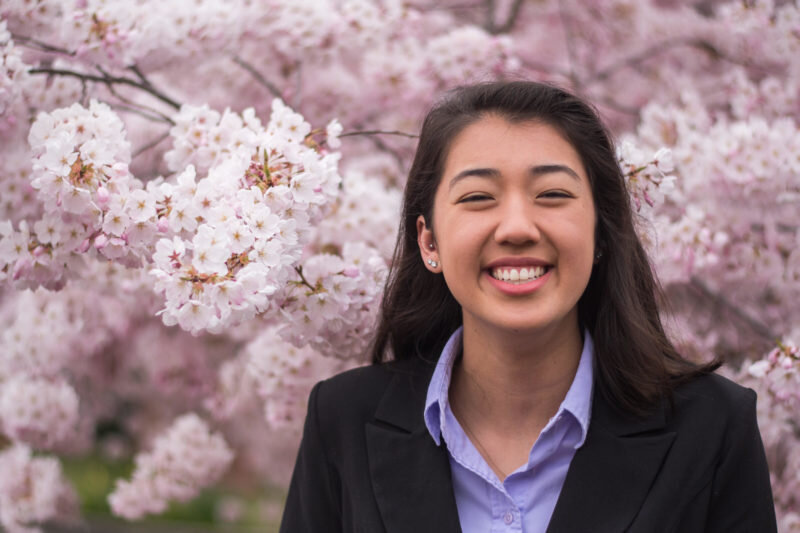Civic Health Spotlight on APANO
Throughout this calendar year, NWHF will be highlighting our Civic Health Cohort, also known as the C4 Power Program.
“Being a token is real, and sometimes the urge to take a backseat so we don’t have to be “the one” is tempting. But denying fear of disappointing everyone to avoid responsibility for everyone doesn’t do anyone any good either.”
— Stacey Abrams
The Asian Pacific American Network of Oregon (APANO) is Oregon’s oldest and largest Asian and Pacific Islander (API) advocacy organization. APANO is one of the more established organizations in NWHF’s Civic Health Cohort, having had their 501(c)(4) status since 2017, but they’re still excited to sit alongside other organizations across the Pacific Northwest to learn best practices, build relationships and improve their integrated voter engagement work. They have a four-member, paid political advocacy team, a luxury most organizations would drool over. And they need a team of that size to meet their ambitious goals!
This spring APANO heads into their seventh election cycle. Over the years they have built significant infrastructure, including systems, tools, data management, internal and administrative systems, as well as communications and fundraising capacity. But they want to grow, to work more effectively and more equitably. Long-term goals include increased engagement with youth and new immigrants, a strong base of API leaders who are ready to mobilize and lead, strong partnerships with Pacific Islander and Southeast Asian communities, and a coalition of BIPOC leaders to increase representation and create policies that center BIPOC communities.
The ladies of APANO almost seem to jump out of the Zoom screen. Their excitement and commitment to social justice is infectious. Michelle and Marchel are two organizers extraordinaire who are influencing multiple progressive tables across the state. A little about these two leaders in the C4 Power Program:
Michelle Hicks (she/her) is a mixed, chronically ill Korean American from California who currently works as a Field Manager at the Asian Pacific American Network of Oregon (APANO). Michelle’s upbringing influenced her to study politics with minors in American Ethnic Studies and Spanish at Willamette University. In her role at APANO, she leads coalitions and supports community members in engaging in advocacy. She also serves as Chair of the Next Up Action Fund (NUAF) Board of Directors. NUAF engages the next generation of Oregon’s leaders to build political power and fight for a more just and equitable Oregon. Michelle is passionate about creating radical access to resources, information, processes and movements through community organizing and advocacy.
Marchel Hirschfield (she/her) was born and raised on O’ahu, Hawaii. She is an immersion of cultural roots and traditions from Okinawa, Russia and the Philippines. Through her life experiences as a queer, brown, single parent and a survivor of domestic violence and the justice system, Marchel is committed to amplifying BIPOC voices to share their stories and be their authentic selves. Marchel currently serves on the board of Call to Safety, a nonprofit organization that provides direct services to folks experiencing domestic or sexual violence, and she continues to advocate for expanded resources for survivors at the state level. As APANO’s Political Director, Marchel hopes to continue to engage and activate youth and community members to grow into their power. Marchel is a mother of two young boys and enjoys going on adventures, photography, plants, crystals and tarot. Marchel hopes that within the convenings she “can grow into my leadership more, and bring back the visioning into the conversations with APANO Directors.”
In the C4 Power Program convenings, Michelle and Marchel hope to learn more about: How to better organize and support people in being able to create storytelling opportunities and build power, and how to bring their 501(c)(3) along in decision making and transparency. The first group convening was held this month, and Michelle’s favorite was the training day featuring Villissa Thompson's workshop on unpacking ableism in communities of color, because “damn do we have work to do!”
NWHF has a long history with APANO, and we couldn’t be happier to have them as part of our Civic Health work. Learn more about APANO at their website: https://www.apano.org/



